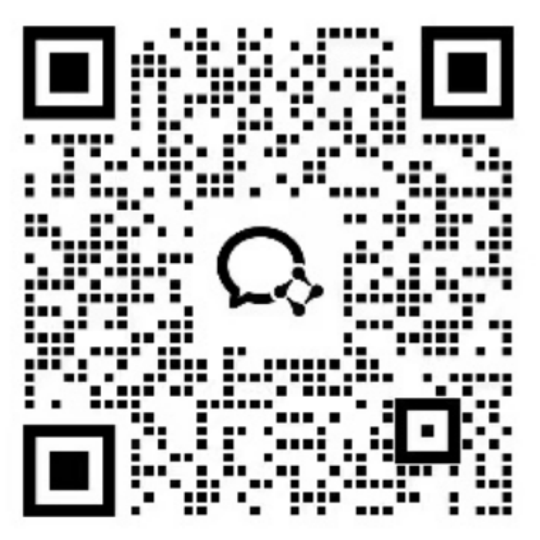设备管理软件英语怎么说

Equipment management software is the term used in English for 设备管理软件. This software is essential for tracking, maintaining, and managing physical assets and equipment within an organization.

I、INTRODUCTION TO EQUIPMENT MANAGEMENT SOFTWARE
Equipment management software plays a crucial role in modern business operations by ensuring that all equipment is properly maintained, tracked, and utilized. This software helps organizations to reduce downtime, extend the life of equipment, improve compliance, and enhance productivity. For instance, reducing downtime is vital because it ensures that equipment is always operational, which can significantly boost productivity and reduce costs associated with idle machinery.
II、FEATURES AND FUNCTIONALITY
Inventory Tracking: Equipment management software provides robust inventory tracking capabilities, allowing businesses to keep a detailed record of all their equipment. This includes tracking purchase dates, maintenance schedules, and usage statistics.
Maintenance Management: A core feature of equipment management software is its ability to schedule and track maintenance activities. Regular maintenance is crucial for ensuring equipment longevity and efficiency. The software can automate reminders for maintenance tasks and log all maintenance activities performed on each piece of equipment.
Asset Lifecycle Management: This functionality helps in managing the entire lifecycle of equipment from procurement to disposal. It includes tracking the depreciation, usage patterns, and financial performance of the equipment over time.
Compliance and Safety: Ensuring compliance with industry regulations and safety standards is critical. Equipment management software helps organizations maintain compliance by keeping accurate records of inspections, certifications, and safety checks.
Reporting and Analytics: Detailed reporting and analytics capabilities allow businesses to gain insights into equipment performance and utilization. These insights can inform decision-making and help in optimizing equipment usage.
Integration Capabilities: Modern equipment management software often integrates with other business systems such as ERP (Enterprise Resource Planning) and CMMS (Computerized Maintenance Management Systems) to streamline operations and ensure data consistency across the organization.
III、BENEFITS OF IMPLEMENTING EQUIPMENT MANAGEMENT SOFTWARE
Enhanced Efficiency: By automating routine tasks such as inventory tracking and maintenance scheduling, equipment management software frees up valuable time for employees to focus on more strategic activities.
Cost Savings: Proper equipment management can lead to significant cost savings by reducing downtime, minimizing repair costs, and extending the lifespan of equipment. Extended equipment lifespan is particularly beneficial as it delays the need for costly replacements.
Improved Decision-Making: With comprehensive data and analytics, managers can make informed decisions regarding equipment purchases, maintenance schedules, and resource allocation. This data-driven approach ensures that resources are utilized optimally.
Increased Productivity: Well-maintained equipment operates more efficiently, leading to increased productivity. Employees can rely on the availability and performance of equipment, reducing interruptions in their workflow.
Regulatory Compliance: Maintaining compliance with industry regulations is easier with equipment management software, which ensures that all necessary inspections and certifications are up to date. This reduces the risk of penalties and legal issues.
IV、KEY CONSIDERATIONS WHEN CHOOSING EQUIPMENT MANAGEMENT SOFTWARE
Scalability: The software should be able to grow with your business. As your operations expand, the software should accommodate additional equipment and users without compromising performance.
User-Friendliness: An intuitive interface is essential for ensuring that all users, regardless of technical proficiency, can effectively use the software. Training and support resources should also be readily available.
Customization: The ability to customize the software to meet the specific needs of your business is important. This includes custom fields, workflows, and reporting capabilities.
Integration: Ensure that the software can integrate seamlessly with your existing systems such as ERP and CMMS. This will facilitate data sharing and streamline operations across your organization.
Vendor Support: Reliable customer support from the vendor is crucial for addressing any issues that may arise. Look for vendors that offer comprehensive support services, including training, troubleshooting, and regular updates.
V、CONCLUSION
Implementing equipment management software is a strategic decision that can bring numerous benefits to an organization. By enhancing efficiency, reducing costs, improving decision-making, and ensuring compliance, this software can significantly contribute to the overall success of a business. When choosing equipment management software, it is important to consider factors such as scalability, user-friendliness, customization, integration, and vendor support to ensure that the solution meets your specific needs and helps you achieve your business goals.
相关问答FAQs:
设备管理软件英语怎么说?
设备管理软件在英语中通常被称为“Asset Management Software”或“Equipment Management Software”。这类软件的主要功能是帮助企业和组织高效地管理其设备和资产,确保资源的最优化利用和维护。通过使用设备管理软件,企业可以跟踪设备的使用情况、维护记录、采购信息以及资产的生命周期,从而提高运营效率,减少成本。
设备管理软件的主要功能有哪些?
设备管理软件通常具备多种功能,以满足企业在设备管理方面的需求。以下是一些主要功能:
-
资产跟踪:设备管理软件能够实时跟踪设备的状态和位置。企业可以通过条形码或RFID技术,快速找到设备的使用情况,避免设备丢失或浪费。
-
维护管理:该软件可以安排设备的维护和保养日程,确保设备始终处于最佳工作状态。通过定期的维护提醒,企业可以防止设备故障,延长设备的使用寿命。
-
报告和分析:设备管理软件通常提供强大的报告功能,能够生成各种分析报告,例如设备利用率、维护成本、故障率等。这些报告帮助管理层做出数据驱动的决策。
-
采购管理:软件还可以协助企业管理设备采购流程,记录采购信息和供应商数据,确保采购的透明和合规。
-
合规性管理:在某些行业中,合规性非常重要,设备管理软件可以帮助企业遵循相关法律法规,确保设备的使用和维护符合标准。
选择设备管理软件时应该考虑哪些因素?
在选择设备管理软件时,企业需要考虑多个因素,以确保所选软件能够满足其特定需求。以下是一些关键考虑因素:
-
功能需求:企业首先要明确自身的需求,是否需要资产跟踪、维护管理、报告分析等功能。根据需求选择合适的软件。
-
用户友好性:软件的界面和操作流程应简单易懂,能够快速上手。复杂的系统可能会导致员工培训成本上升,影响使用效果。
-
可扩展性:随着企业的发展,可能需要对设备管理软件进行扩展,因此选择一个具有良好可扩展性的系统是明智之举。
-
技术支持:选择软件时应考虑供应商提供的技术支持服务,包括安装、培训和后期维护等,以确保在使用过程中遇到问题能够及时解决。
-
成本效益:设备管理软件的投资应与其带来的效益相匹配。企业需要综合考虑软件的购买费用、维护费用以及可能产生的其他成本。
版权声明:本文内容由网络用户投稿,版权归原作者所有,本站不拥有其著作权,亦不承担相应法律责任。如果您发现本站中有涉嫌抄袭或描述失实的内容,请联系邮箱:hopper@cornerstone365.cn 处理,核实后本网站将在24小时内删除。
最近更新
立即开启你的数字化管理
用心为每一位用户提供专业的数字化解决方案及业务咨询




